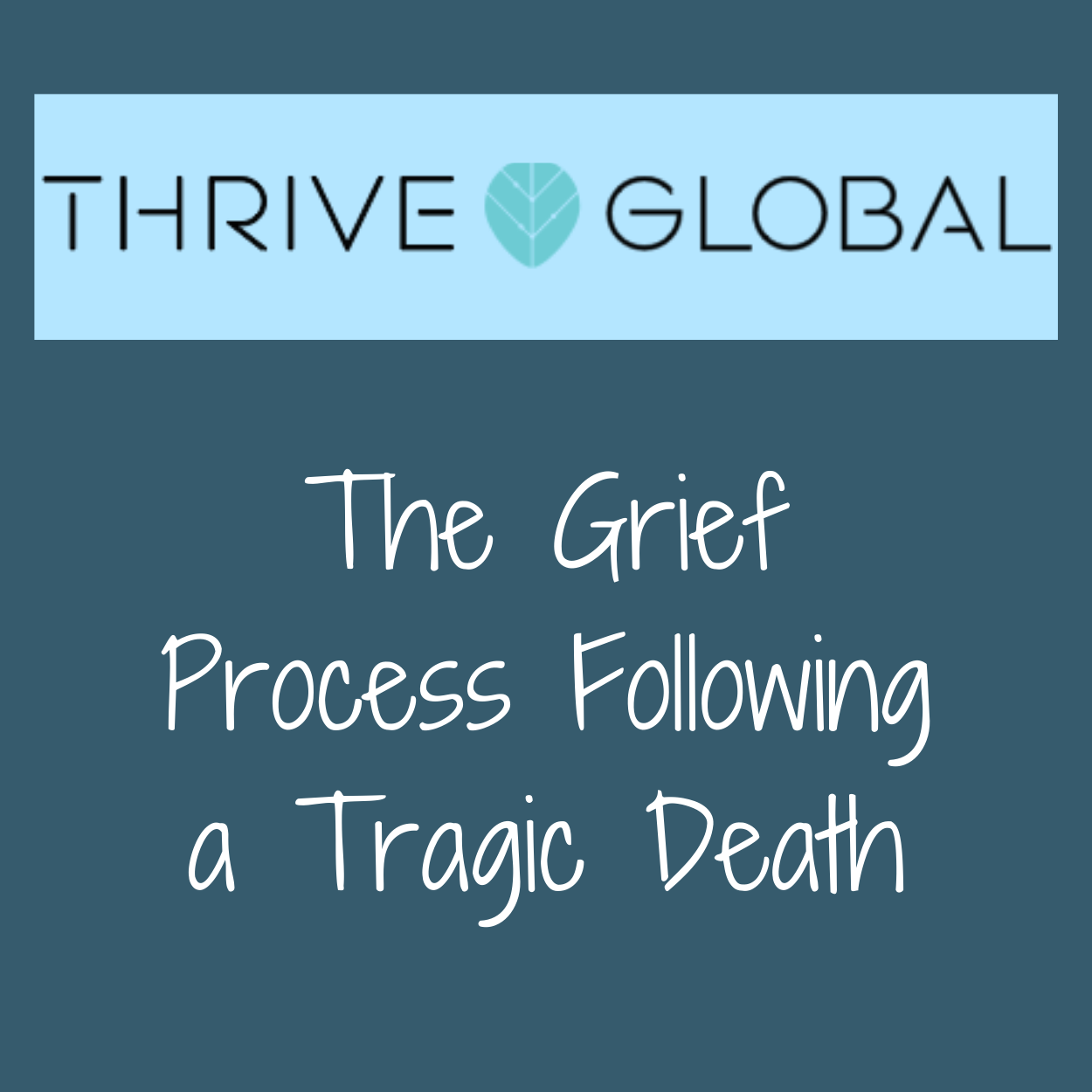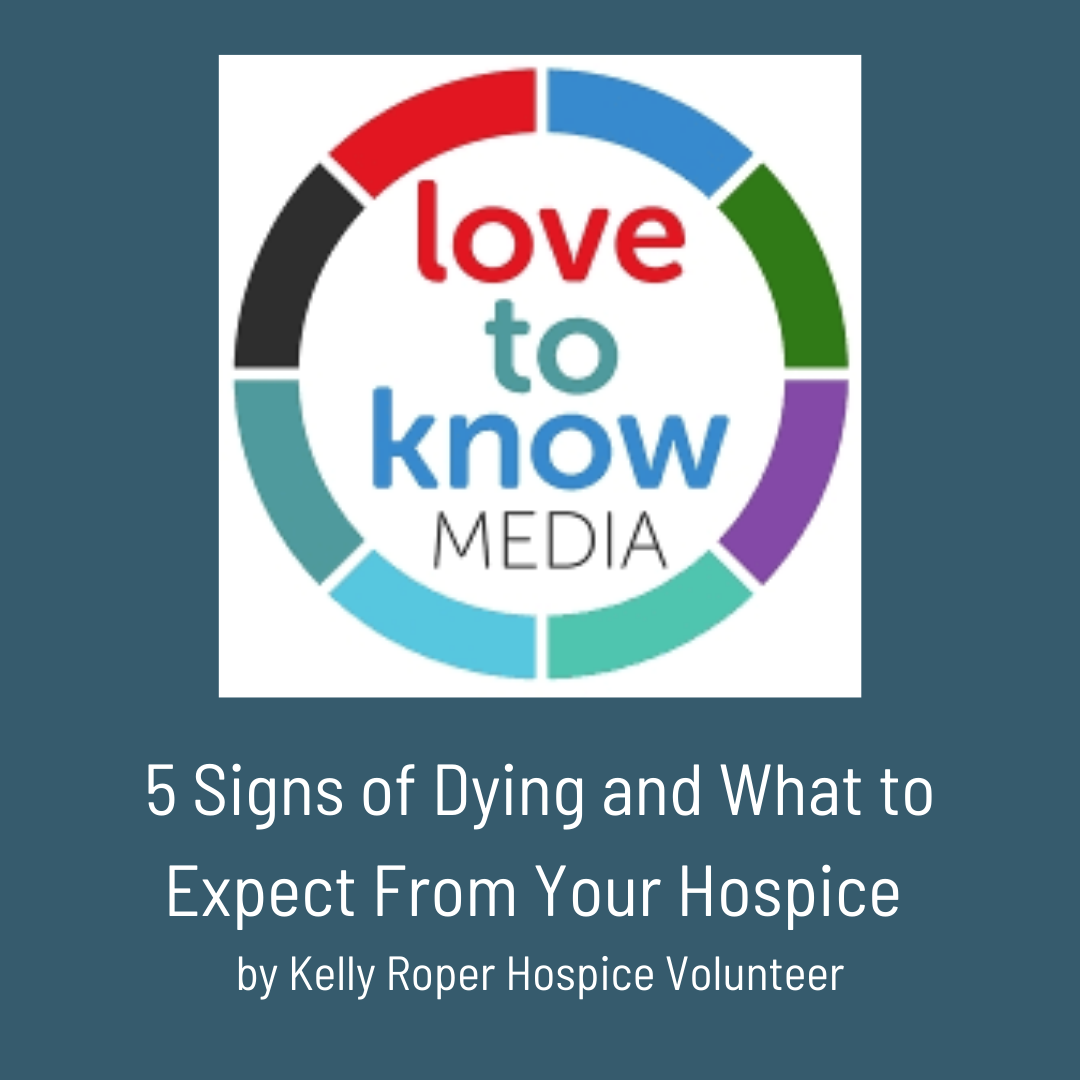The Edge: Michelle Markelz

BY THE TIME YOU CALL HOSPICE CARE, YOUR HOUSE IS PRETTY FULL. THERE IS A FREEZER BURSTING WITH SYMPATHY DINNERS, AND ITS DOOR IS COVERED IN SYMPATHY CARDS. ONCE HOSPICE ARRIVES, IT GETS EVEN FULLER. THEY BRING SOCIAL WORKERS WITH CATHARTIC EXERCISES AND NURSES TO ADMINISTER PAIN MEDICATION. ONE LEVEL-HEADED PERSON WEARS SCRUBS AND CHECKS FOR A PULSE WHILE EVERYONE ELSE SOBS OR CONSIDERS THEIR GRIEF. BUT NO MATTER HOW CROWDED IT GETS, THERE’S ALWAYS ROOM FOR THE “LITTLE BLUE BOOK.”
It has a title, of course, but no one uses it in conversation. To survivors, those the deceased leaves behind, it is a talisman, a source of strength. Ask one of them if they’ve read Gone From My Sight, and they’ll hesitate. Suggest that it’s a powder-blue, 15-page pamphlet with a sail boat on the front, and watch the recognition register on their faces. They’ll recall reading it as time grew too short. They’ll remember the checklist and how each week more boxes were ticked, whether one at a time, in reverse order, or three in one night.
- One to three months remaining: decreased intake of food.
- One to two weeks left: talking with the unseen.
- Days or hours before the end: blotchy purplish knees, feet, and hands.
- Minutes until goodbye: “fish out of water” breathing, cannot be awakened.
When I read the blue book, I was only in sixth grade. I’m not sure I was meant to see it — I had my own book with illustrations — but it wasn’t exactly hidden. It was impossible to hide the reality though: the end of my mother’s story would be death by cancer. The only question was when.
Her conclusion seemed to come faster the day I heard a thud from below my second-story bedroom. I bounded down the stairs two at a time and grabbed the molding to whip myself around the corner — a lively display of youth in stark contrast to the withering figure before me.
To this day, seeing my mother on the floor in our living room is one of the most pathetic memories I have. By pathetic, I mean evoking pity; it was the most genuine pity I’ve ever felt. An emotion so deep it made my stomach and chest clench up, as if someone were squeezing too hard. Pity that was too much for me to handle — so much it felt like I’d crack from the pressure — but not enough to help her, the person who was losing all control. The person who went from being a teacher, chef, personal secretary for a family of six, to an invalid needing a walker to hold herself up. The person who decided to try Qigong — because what the hell else do you have to lose when your hair is gone and you can’t feel your legs? The person who toppled over after the instructor on the TV said to stand on one foot.
After I helped her up, she only asked one thing of me: to rub lotion on her legs, which had been numb for about a month. She lay on the couch, I knelt beside her, and I kneaded comfort into her barely-there muscles.
It was one of the few moments we were alone during that time. We hardly spoke but for her hums of appreciation. I was making good on what we agreed upon weeks earlier. We had wordlessly crowded on my twin-size bed, and she held me for the last time the way a mother holds her child, protectively, because I had just learned the hardest fact of my life: the doctors had done all they could; Western medicine was putting up the white flag. That night, in an unintentionally symbolic act, she handed, or rather hugged, over her guardianship.
I remembered the blue book as I applied the lotion and what it said about bruised brownish joints. I cradled each hinge like a delicate artifact and, searching for the empirical evidence, brought my face up close to inspect it. I saw the bruises on her elbows and took minimal comfort, but comfort all the same, in not being caught off guard.
The splotches on her skin were not the first sign she was terminal, but they were the first ones out of the book. The eye patch she wore from her last offensive with radiation; the way she had become thinner than ever; how she could not stand, could not walk alone, and soon would be bedridden, these were the evidence of the end, but I hadn’t been willing to accept them. Now it was undeniable.
It has to be a fundamental truth that humans are always fighting for control, no matter what it’s over — our bodies, the weather, death — we just want it. Call it autonomy, power; the name is really irrelevant. What the little blue book gave me and countless others who’ve read it was not the power to defy death. That much is obvious. But it gave us the armor to deny death power over us. It allowed us to face the ultimate adversary of our control with brave faces. Ask a survivor why they remember Gone From My Sight, and they’ll speak of the strength it gave them to read the words:
“Her diminished size is in me, not in her. And just at the moment when someone at my side says: ‘There, she is gone!’ There are other eyes watching her coming, and other voices ready to take up the glad shout: ‘Here she comes!’
And that is dying.”
And as we, the survivors, watched with watery eyes as our loved ones disembarked, we knew Death did not rob us of our last possessions. It did not take our preparedness, our knowledge of what was to come, or our acceptance.
The blue book is a comfort; it is not a crutch. Like an embrace or tender squeeze of hands, it is not meant to be singularly enjoyed but passed to the next person in need. When it has been closed, we open ourselves. My mother has been gone from my sight since 2003, but I understand that despite the void her death left in so many places, I find her more deeply in others: in music, in the faces of her former students. But more and more I see her in the person I am becoming.
Related Products: The End of Life Guideline Series, New Rules for End of Life Care







